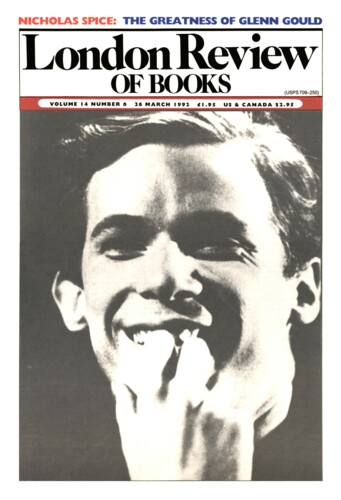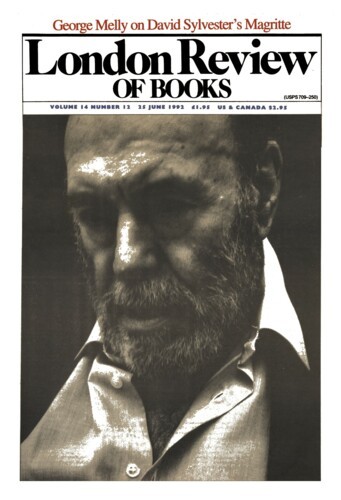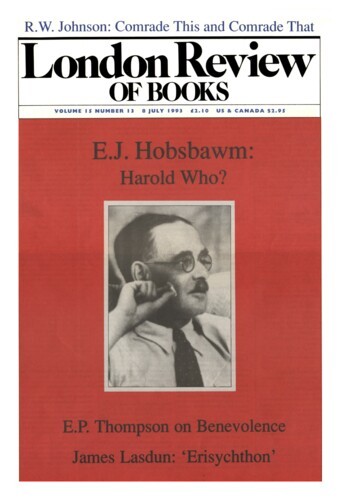Sheeped
Julian Loose, 30 January 1992
Entering a Japanese department store one December, an American was startled to see, among the festive tinsel and fairy lights, an unusual seasonal decoration – a row of Father Christmases, crucified. Apocryphal, perhaps, but the endless production of blithe parodies of Western icons has surely struck more than one visiting gaijin. Japan is both closer and further than we think: it returns our language and traditions oddly transformed, yet to us many of its own categories are mysterious, if not invisible. This blend of the familiar and strange may explain our tendency to seize upon Japan as the very image of the contemporary. Having apparently jumped straight from pre-modernism to postomodanizumu, its culture seems both bewilderingly fluid and monumentally static. Even Baudrillard, it has been said, would find the Japanese passion for simulacra a little unnerving; Derrida would be at a loss, for nothing remains to deconstruct.





